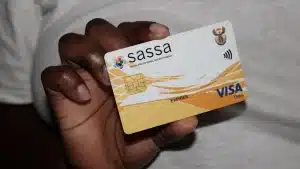Applying for a SASSA Disability Grant in South Africa requires specific documentation to verify eligibility. The grant, administered by the South African Social Security Agency (SASSA), provides financial assistance to individuals who are unable to work due to a disability.
To ensure a successful application, it is crucial to submit the required documents for the Disability Grant and meet all eligibility criteria.
This guide outlines everything needed to apply, including the application process and common FAQs.
Eligibility Criteria for the SASSA Disability Grant
To qualify, an applicant must:
- Be a South African citizen, permanent resident, or refugee.
- Be between 18 and 59 years old.
- Have a medical report confirming the disability.
- Not be cared for in a state institution.
- Not be receiving another social grant.
- Meet the means test (income and assets must be below a certain threshold).
Required Documents for the Disability Grant
To apply for a SASSA Disability Grant, the following documents are required:
1. Certified Copy of Your ID
A certified copy of your South African Identity Document (ID) is required. If you do not have an ID, an affidavit and proof of application from Home Affairs must be submitted.
2. Medical Report and Functional Assessment Report
A medical report and functional assessment report must confirm the disability. These documents must:
- Be completed by a registered doctor.
- Be no older than three months.
3. Medical Assessment Referral Form
Once you have downloaded the attached form and completed it with a doctor or clinician, please take it to your nearest SASSA office.
4. Proof of Marital Status (If Applicable)
Applicants who are married, divorced, or widowed must provide:
- Marriage certificate (if married).
- Divorce decree (if divorced).
- Death certificate of the spouse (if widowed).
5. Proof of Residence
A utility bill, municipal statement, or an official letter verifying the applicant’s residential address must be submitted.
6. Proof of Income or Dividends (If Any)
If the applicant receives income, dividends, or allowances, documentation proving this must be included.
7. Proof of Assets (Including Municipal Value of Property)
The applicant must provide proof of:
- The municipal value of any owned property.
- Other significant assets registered in their name.
8. Proof of Private Pension (If Any)
Applicants receiving a private pension must submit official documentation or bank statements reflecting pension payments.
9. Bank Statements for the Last Three Months
Applicants must provide bank statements covering the last three months to verify their financial situation.
10. UIF ‘Blue Book’ or Discharge Certificate (If Previously Employed)
If the applicant was employed in the past, they must submit:
- The Unemployment Insurance Fund (UIF) blue book.
- The discharge certificate from their last employer.
11. Additional Documents for Widowed Applicants
If the applicant’s spouse passed away within the last five years, they must provide:
- A copy of the will.
- The first and final liquidation and distribution accounts of the estate.
How to Apply for the Disability Grant
Step 1: Visit a SASSA Office
The applicant must apply in person at the nearest SASSA office.
Step 2: Submit All Required Documents
Ensure that all documents are valid, certified, and up to date before submission.
Step 3: Undergo a Medical Assessment
A SASSA-approved doctor will conduct a medical assessment and issue a medical report confirming the disability.
Step 4: Complete the Application Form
SASSA officials will assist the applicant in completing the official application form.
Step 5: Biometric Fingerprint Verification
Applicants must undergo fingerprint verification as part of the security measures.
Step 6: Receive a Receipt as Proof of Application
Once the application is submitted, the applicant receives a receipt as proof of submission.
Processing Time and Payment Details
- The processing period for a Disability Grant application is approximately three months.
- If approved, the grant is paid through:
- Bank account deposits.
- Cash at designated pay points.
- Post Office or SASSA-approved retailers.
What If Your Application Is Rejected?
If the application is denied, SASSA will provide written reasons for rejection. If the applicant disagrees with the decision, they have 90 days to submit a written appeal.
Frequently Asked Questions (FAQs)
1. Can someone apply on behalf of another person?
- Yes, a legal caregiver or proxy may apply on behalf of an individual who is unable to apply in person. Proof of legal authority is required.
2. How often does the grant need to be renewed?
- Temporary Disability Grant: Expires after 6-12 months and must be renewed.
- Permanent Disability Grant: May require periodic medical reviews.
3. Can a person receive the Disability Grant while working?
- The grant is subject to a means test. If income exceeds the set threshold, the applicant may not qualify.
4. What is the Means Test?
The means test assesses income and assets:
- Single applicants: Must earn below R86,280 per year (R7,190/month) and own assets worth less than R1,227,600.
- Married applicants: Combined household income must be below R172,560 per year (R14,380/month) with assets under R2,455,200.
The Required Documents for the Disability Grant play a crucial role in ensuring a smooth application process. Meeting all eligibility criteria and submitting the correct certified documents increases the chances of approval.
For further assistance, visit a SASSA office or check the official SASSA website.




